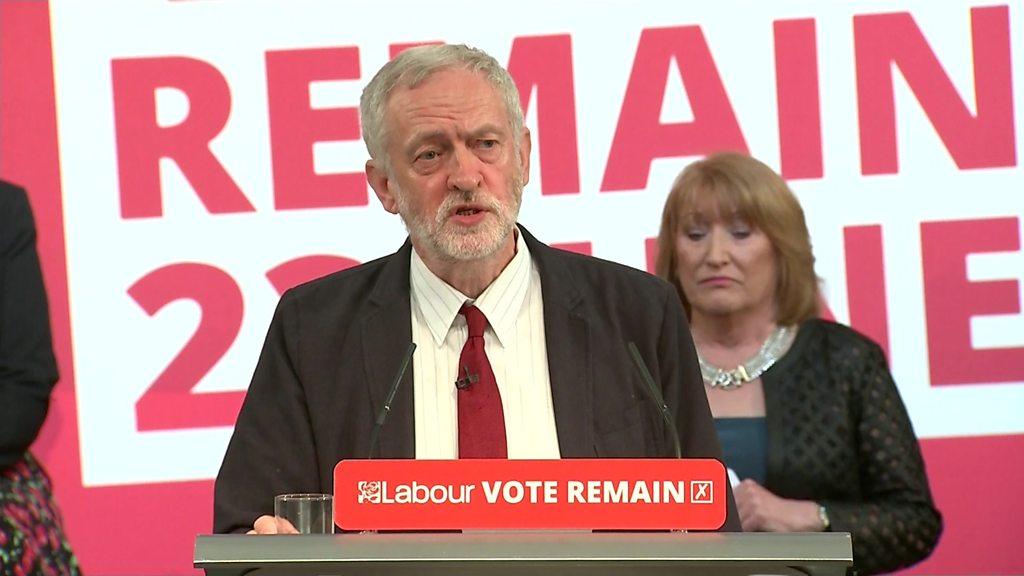EU Referendum: Immigration plays strong in Welsh valley
- Published
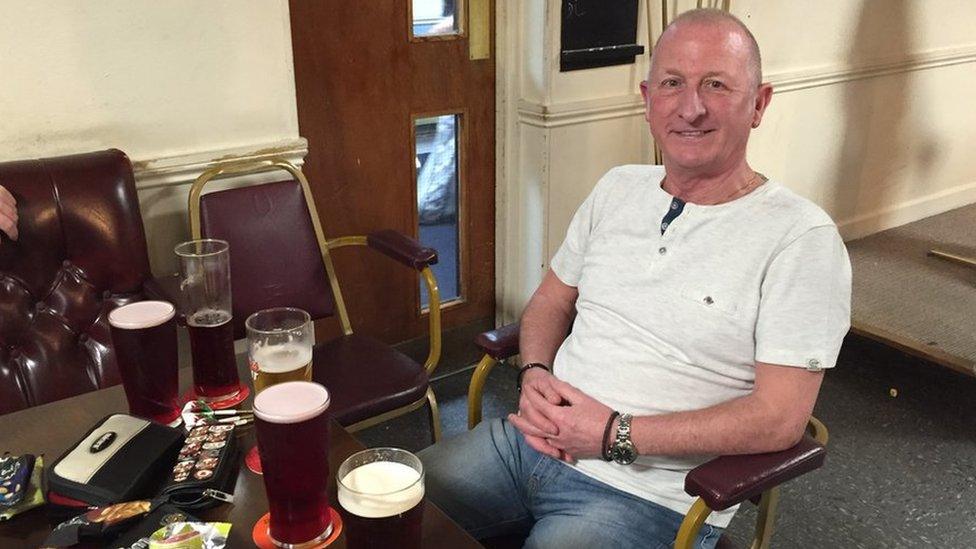
Ray Smith says he wants to get his country back
The sky is sea blue and the sun is bursting through the trees. Add beer to that equation and it is no wonder spirits are high inside the Penydarren Social Club in Merthyr Tydfil, south Wales.
It is just gone 7pm and as I enter the bar, I am greeted by a group of men untidily singing the Tom Jones favourite 'Delilah'.
I wait for the crescendo in the chorus to subside before I interrupt with questions on the EU referendum. The mood quickly turns serious and passionate views are rife.
Ray Smith, who is retired, is sipping his pint and munching on peanuts with a few of the other lads across from the snooker table.
His views are as bitter as his beer when it comes to his anger towards the growing Polish population here who he accuses of taking all the labour jobs.
"I want out to get our country and our borders back," he says.
Johnson warns of EU migration 'risks'
EU referendum issues guide: Explore the arguments
Labour clashes over EU referendum
"All the immigrants that shouldn't be here, we can get them all back out. They're crippling the NHS; our surgeries are packed and you can't get an appointment.
"The mess they leave around the place, they're unbelievable. A lot of them just don't care, they've got no appreciation for the country at all."
Bingo night
Industry and trade are at the heart of Merthyr Tydfil. In the 19th century, coal mining revived the economy.
It was after World War II that more factories were built in the area to take advantage of the unemployed workforce.
It is these factories that have attracted a large Polish population, many of whom now work at the St Merryn meat-processing plant.
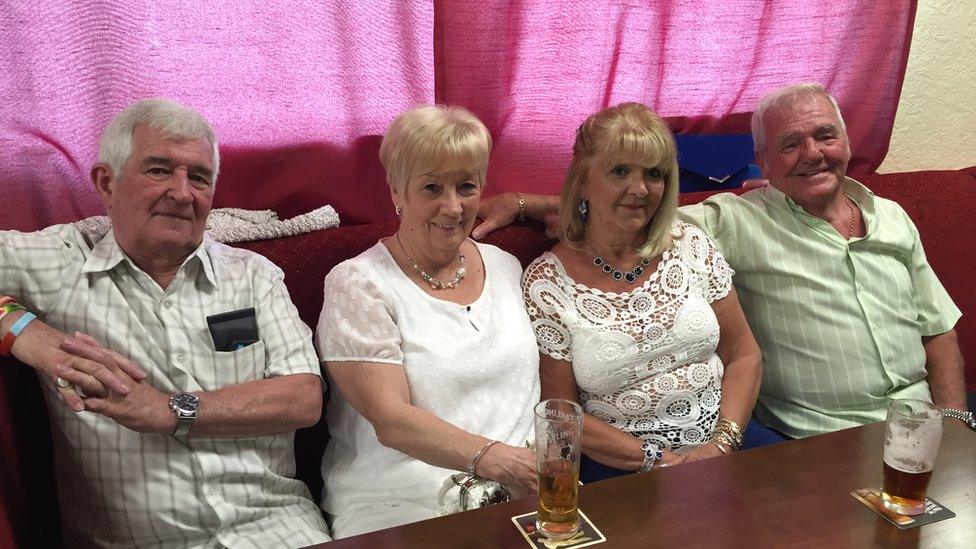
The Remain crowd in the club think problems with the EU can be resolved
In the neighbouring room it is bingo night and the rows of chairs are slowly being occupied as the people flood in for what I am told is the town's most popular entertainment.
Val Ferguson is in her seventies but is annoyed at the argument that the Polish people are taking all the work.
"I wanted to leave but then my husband and I got talking and now I want to stay in the EU," she says. "Like when they say there are no jobs for our youngsters, I don't understand.
"I got to be honest, some of our youngsters don't want to work. They go around on their motorbikes and don't want to get out there and work. The Polish are just doing them jobs."

Corbyn: Don't pin blame on migrants
Corbyn: Austerity, not migrants, is cause of problems

Rise of migrants
According to figures from the Oxford University Migration Observatory, the number of migrants in Wales has risen substantially over the last decade.
Merthyr Tydfil has seen its migrant population increase during the 10 years to 2011 from just 807 non-UK residents to 2,641.
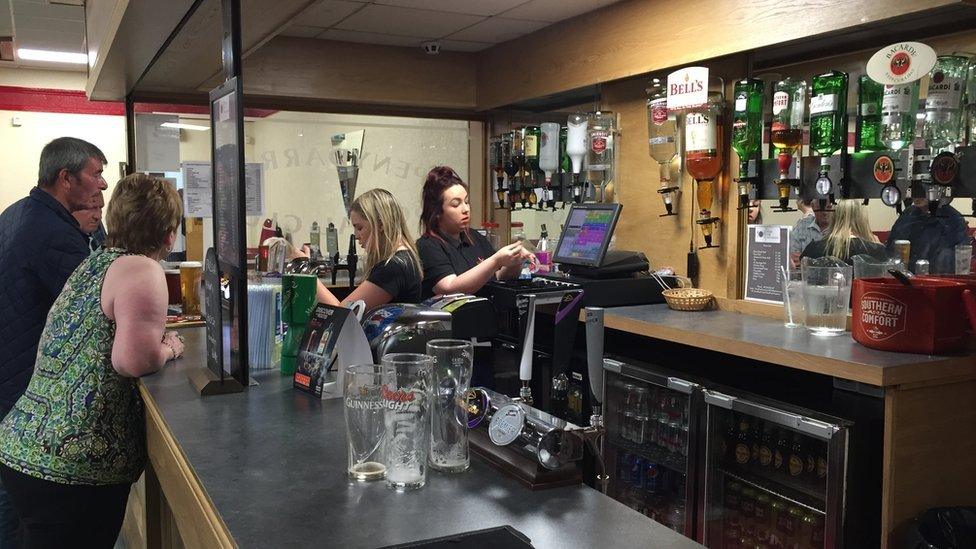
Merthyr Tydfil's deprivation is helping to decide minds
It is this backdrop, along with the town's unemployment and deprivation, that is shaping the way in which some people will vote on 23 June.
Darren Lock is concerned about the future. A bricklayer from Merthyr, he says it is sad that his hometown is becoming more foreign with an influx of migrants from Europe.
"They've taken our jobs from us, and it's our culture, it's where we were brought up and where we belong," he tells me.
"If you're born in Britain, you know, you should be here. But at the end of the day nobody knows the future and this vote is a gamble but I still think we got to go out."
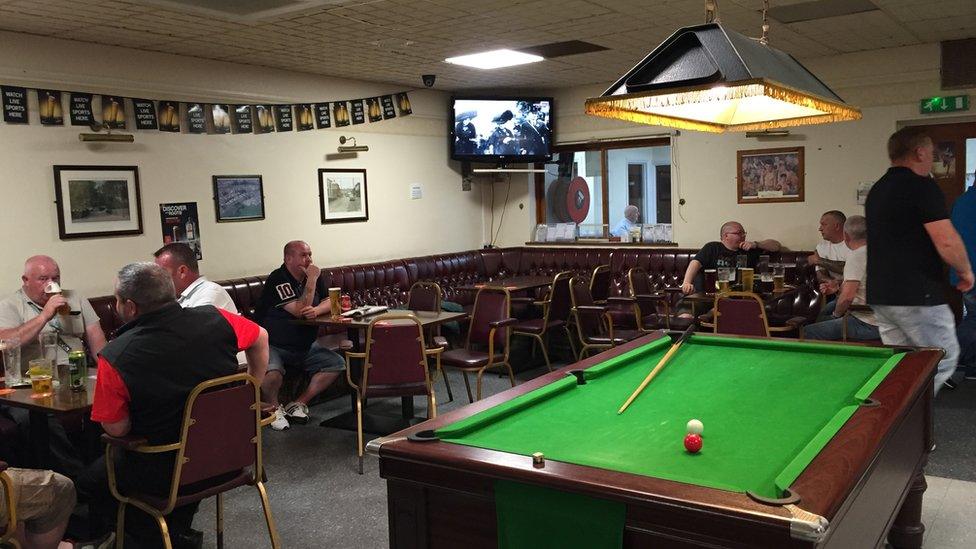
The owner of the club is struck by how many people want to vote Leave
In the recent Welsh Assembly elections, UKIP took more than 20 per cent of the vote in Merthyr Tydfil - perhaps an illustration of how significant the issue of immigration is to those living here.
With Port Talbot's future uncertain, and thousands of jobs there at risk, the mood here seems to have soured as a result. This could be a crucial factor in which box people tick in the up-coming referendum.
Brian Thomas, 69, runs the social club and is struck by how many people in the bingo hall want to leave the EU.
He said: "In my opinion, the only thing the Brexit people have going for them is immigration.
"We know it's a problem but it's not an insurmountable problem. It's a problem we can resolve".
- Published2 June 2016
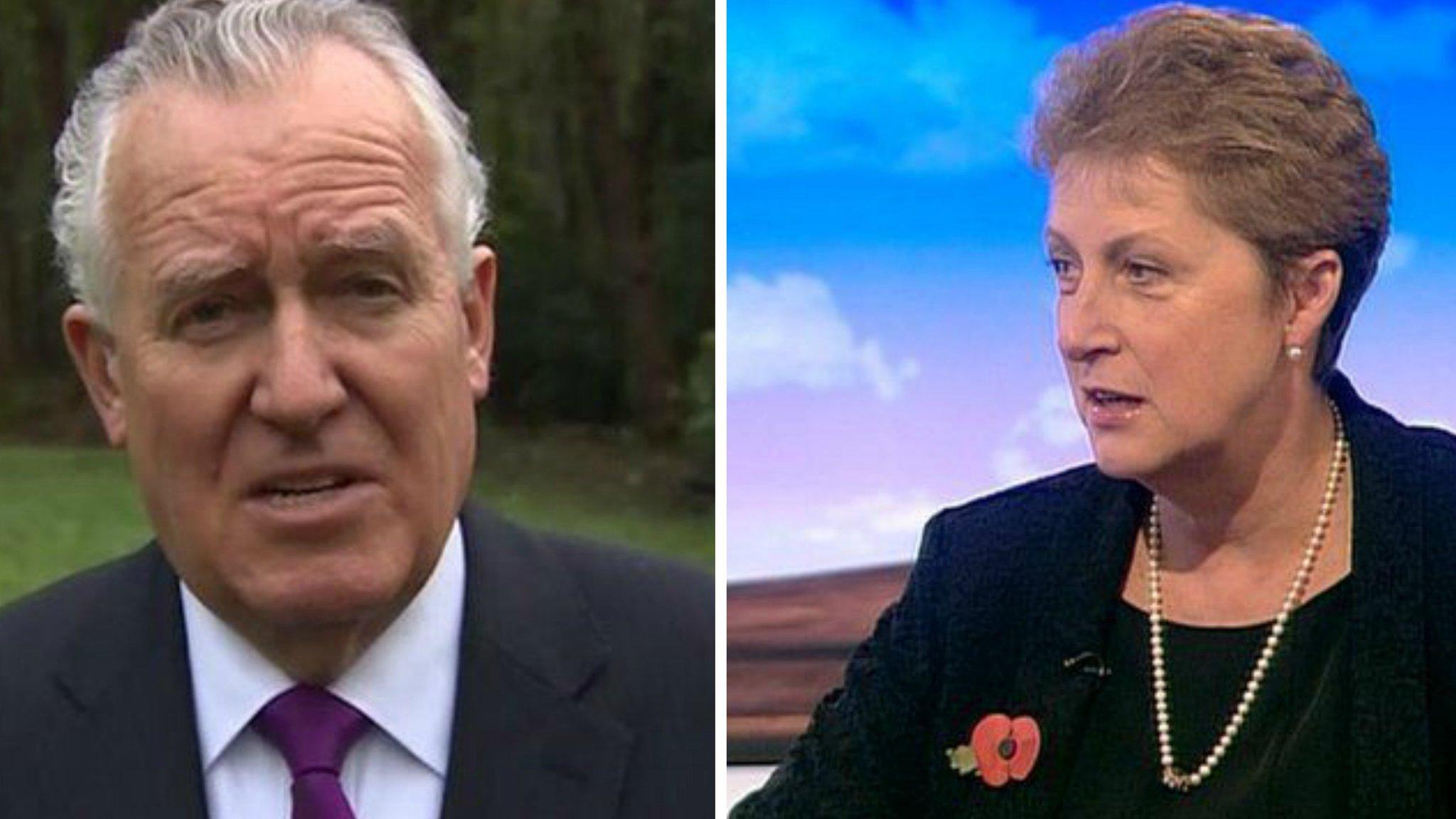
- Published6 June 2016
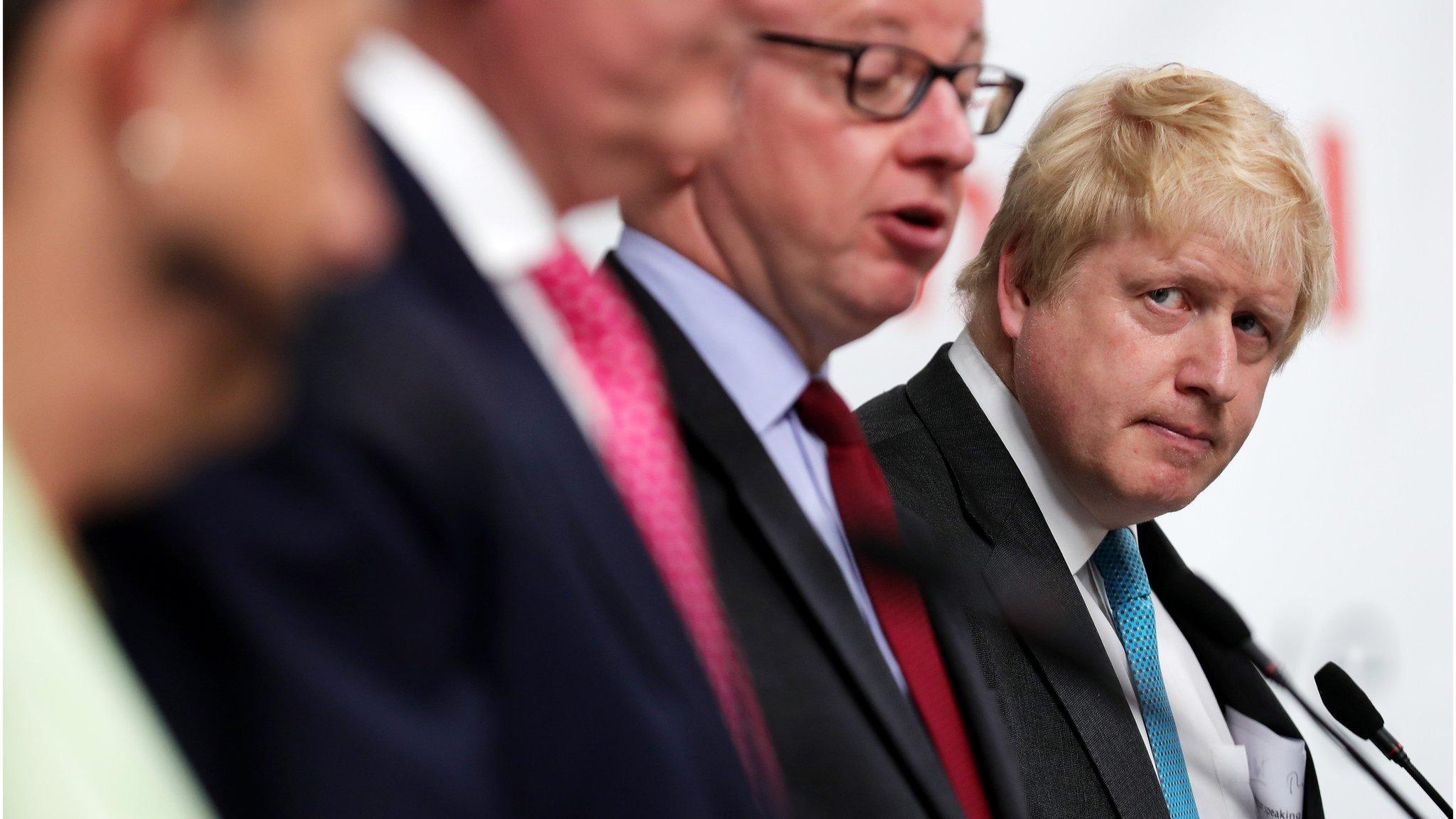
- Published29 April 2016

- Published2 June 2016
